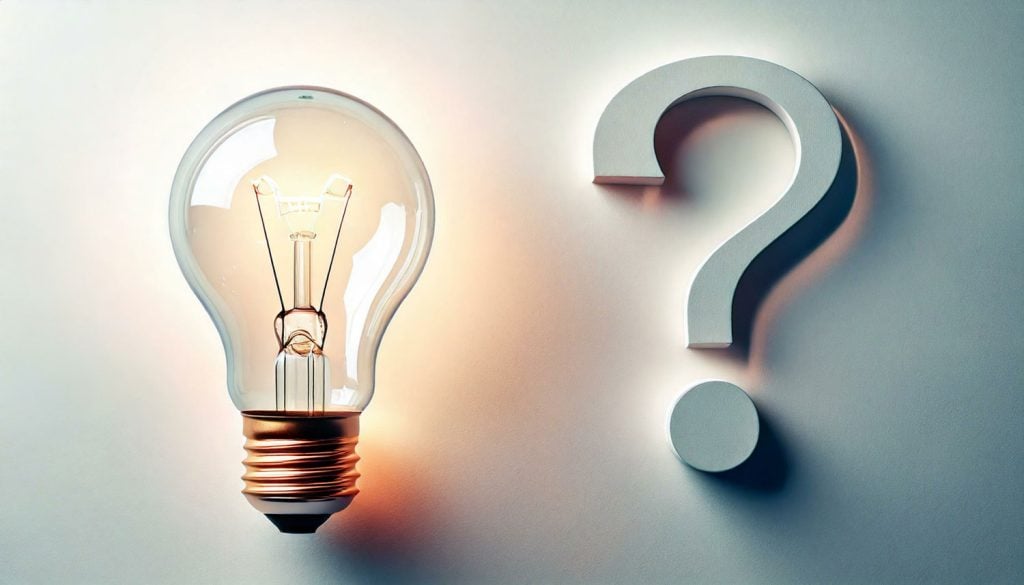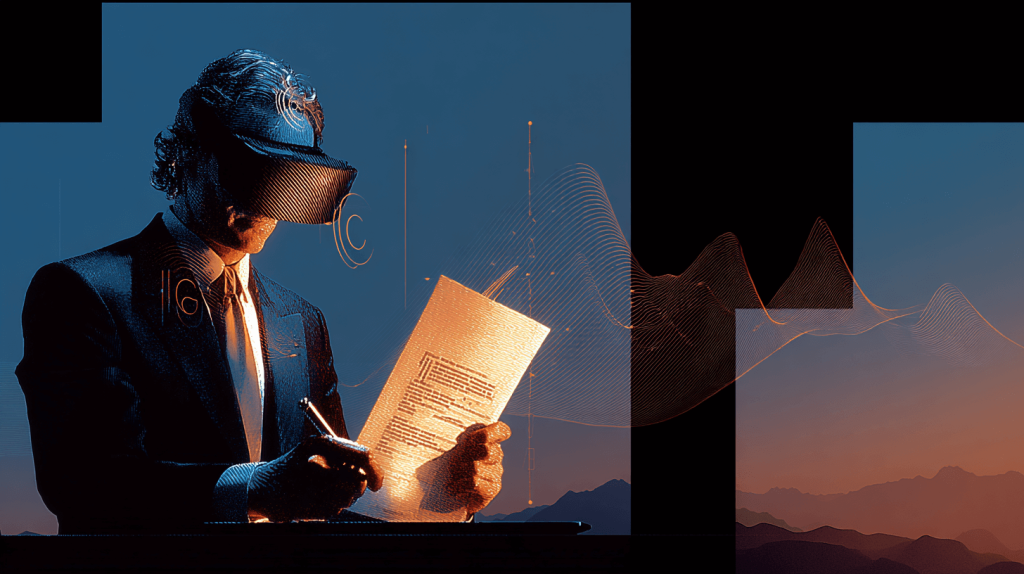Preparing to file a patent? Asking the right questions can help you understand the complexities of the process, so you can make informed decisions that lead to thoroughly protecting your invention. Here’s a list of the top 21 questions to ask a patent lawyer, covering their expertise, costs, and the steps involved.
Before reading the list, it is important to note the distinction between patent agents and patent attorneys. While patent agents can assist with the patent application process, they are not patent attorneys and cannot provide legal advice. Engaging with a patent lawyer is a critical step in safeguarding your intellectual property. By asking the right questions, you can gain insights into the lawyer’s experience, their approach to handling patent applications, and how they can help you navigate the complexities of patent law.
Choosing the right patent attorney requires careful consideration of several factors, including their experience, industry and technical expertise, fee structure, and the quality of content they provide. By thoroughly questioning your patent lawyer, you ensure that you have a clear understanding of the patenting process and that you are in capable hands.
Key Takeaways
- Choosing a competent patent attorney with a strong technical background and a successful track record in your field is crucial for securing patent protection.
- Understanding the patent application process, including timelines, costs, and the importance of prior art searches, is essential for effective planning and budgeting.
- Post-grant, patent owners must remain vigilant against infringement and keep track of maintenance fees to ensure ongoing patent enforceability.
Top Questions to Ask Patent Lawyer – Assessing Patent Lawyer’s Expertise
Choosing a skilled patent attorney is crucial for the effective filing of your patent application. Their proficiency in patent law plays an essential role in protecting your intellectual property and saving you money by reducing errors during the application process and addressing legal challenges that could threaten the security of your innovation.
The majority of these attorneys are registered with the United States Patent and Trademark Office (USPTO), which confirms their expertise in matters related to patents. Registered patent attorneys are authorized to represent clients before the USPTO and are essential in navigating the complexities of patent law, ensuring that your application is handled with the necessary technical experience and knowledge.
A strong indication of a patent attorney’s prowess is their technical background and proven success in securing patents, particularly for inventions similar to yours in terms of technology.
1. What is Your Technical Background?
The expertise in technical fields held by a patent attorney is crucial for fully understanding the technical aspects of your invention and the sector it belongs to in the context of patent law. Familiarity with pertinent technologies and commercial environments can greatly enhance the likelihood of obtaining patent protection.
By conveying comprehensive details regarding your innovation, you empower the attorney to conduct an accurate assessment and extend superior assistance.
2. How Many Patents Have You Successfully Obtained?
Asking a lawyer about the number of patents they have successfully obtained can serve as an indicator of their expertise and track record. It is important to inquire specifically about their accomplishments within the technical field related to your invention.
Understanding this will provide you with insight into their proficiency and how well-acquainted they are with your specific area of interest.
3. Do You Have Experience with Similar Inventions?
Experience with similar inventions greatly enhances a patent attorney’s ability to address your specific needs. Whether your invention is in software, biotechnology, electronics, or another advanced field, it’s essential to confirm their expertise in handling relevant patent applications. For example, if you’re a SaaS company, you should verify the attorney’s experience in filing and prosecuting software patents. Similarly, if your invention involves biotechnology or electronics, ensure the attorney has a proven track record in prosecuting patents within those industries.
This specialized experience provides valuable insights and strategies, particularly in the nuances of patent prosecution—drafting applications that effectively navigate prior art and working closely with examiners to secure approval. Attorneys with field-specific experience bring tailored knowledge of industry challenges, allowing them to anticipate issues, craft stronger claims, and effectively engage with examiners familiar with the technical intricacies of those fields. This depth of expertise ensures that your invention is well-positioned for success and properly defended throughout the patent process. For further details on the industries and technical fields we cover, see here.
Moreover, an attorney with experience in your specific industry can offer tailored advice on the challenges unique to your technology, helping you navigate eligibility requirements and prosecution hurdles. Their familiarity with the latest trends and legal developments within the field enables them to align your patent strategy with current standards, increasing your chances of securing a robust patent and maintaining it against potential challenges. Ultimately, selecting a patent attorney with a proven track record in your industry enhances your ability to secure meaningful protection and adds substantial value to your business.
Additionally, such attorneys are more likely to stay informed about the latest developments and trends in patent law across different industries, which can be crucial in adapting your patent strategy to align with current legal standards and practices. This proactive approach can be instrumental in not only securing your patent rights but also in maintaining them against potential challenges or infringements.
Ultimately, choosing a patent attorney with a proven track record in handling inventions similar to yours across various technologies can significantly enhance your chances of obtaining a patent that provides meaningful protection and adds substantial value to your business.
4. Are You Registered with the USPTO?
When seeking the services of a patent attorney, it’s essential to ensure they are registered with the United States Patent and Trademark Office (USPTO). A registered patent attorney has the necessary qualifications and expertise to represent clients before the USPTO. They have passed the patent bar exam and possess the required technical background to understand the intricacies of patent law.
This registration is a testament to their proficiency in handling patent applications, conducting patent searches, and navigating the patent prosecution process. By choosing a registered patent attorney, you can be confident in their ability to provide comprehensive guidance throughout the patent application process, ensuring your invention is well-protected.
Understanding the Patent Process
Understanding the patent process is crucial for effectively safeguarding your intellectual property. Engaging a seasoned patent attorney with experience at the USPTO can significantly enhance the efficiency of the application process.
It’s important to be familiar with each stage in securing a patent, including standard time frames and how to manage office actions from the Patent Office. This knowledge is vital for navigating through these proceedings successfully.
5. What Steps Are Involved in the Patent Application Process?
The application process for obtaining a patent involves choosing the right kind of patent—whether it be utility, or design patent—and might begin with filing a provisional patent application. This includes exhaustive documentation and enters phases that encompass submission and examination as part of the patenting process associated with patent applications.
After the submission of a patent application, it faces a review period that lasts around two and a half years.
6. What Is the Timeline for the Patent Application Process?
The patent application process for a utility patent can take anywhere from 24 to 36 months. The duration of this process is subject to variability based on several factors including the complexity of the application, the backlog at the patent office, and how much preparatory work has been done before filing.
7. How Do You Handle Patent Office Actions?
Addressing objections and rejections from the Patent Office necessitates a strategy that encompasses thorough responses, engaging in conversations with clients to discuss required changes, and adjusting the application as needed.
The expenses associated with responding to office actions by the Patent Office can range from $1,500 to upwards of $4,000. The cost is contingent on how complex the objections are.
8. What Type of Patent Fits My Invention?
Determining the right type of application to file for your invention is a crucial step in the patenting process. There are three types of patents: utility patents, design patents, and plant patents. A utility patent is the most common and covers the functional aspects of an invention. For instance, if your invention involves a new machine, process, or composition of matter, a utility patent would be appropriate.
On the other hand, a design patent protects the ornamental design of an invention, such as the unique shape or appearance of a product. Lastly, a plant patent is granted for new and distinct plant varieties that have been asexually reproduced. A patent attorney can help you determine which type of patent best suits your invention by evaluating its characteristics and intended use. This ensures that your intellectual property is adequately protected under the appropriate patent filing.
9. How Do You Determine if an Invention is Patentable? (For Utility Patents)
To determine if an invention is patentable, a patent attorney will conduct a thorough prior art search to identify any prior art that may affect the patentability of the invention. This search involves examining existing patents, published patent applications, and other relevant literature to ensure that your invention is novel and non-obvious.
Additionally, the attorney will assess the utility and subject matter eligibility of the invention, ensuring it meets the criteria set forth by the USPTO. By evaluating these factors, a patent attorney can provide a clear assessment of the patentability of your invention and guide you through the patent application process. This comprehensive approach helps in identifying potential challenges early on and increases the likelihood of a successful patent application.
Costs and Fees
Understanding the cost structure, payment timelines, and any potential extra charges is crucial to avoid unforeseen financial surprises and enable effective budgeting for your company’s funds.
10. What Is Your Fee Structure for Filing a Patent Application?
Applying for a patent typically involves various expenses, including hourly rates, fixed fees, and additional charges. For utility patents, the primary filing costs are $128 for smaller entities and $320 for larger ones. Provisional applications, on the other hand, come with reduced fees, making them a cost-effective preliminary step.
11. Are There Additional Costs Beyond the Initial Filing Fee?
A utility patent application incurs basic filing, search, and examination fees. Additional services or costs may apply beyond the initial filing fee.
A prior art, or “patentability,” search can prevent unnecessary spending on applications for non-patentable inventions.
12. Can You Provide an Estimate of the Total Cost of the Patent?
Acquiring a utility patent can cost anywhere from $5,000 to $15,000. Including all related expenses might increase the total to as much as $25,000. Conversely, the cost for design patents usually falls within the range of $1,500 to $4,000.
It is essential to consider these cost projections for meticulous planning and budget management.
Conducting a Prior Art Search
Understanding the importance of a prior art search is crucial for assessing the likelihood of patentability and preventing the waste of time, money, and resources on filing, prosecuting, or even launching a product that is likely to fail at the USPTO. Ensure that your attorney will conduct this search to confirm your invention’s potential for patent success.
13. Will You Conduct a Patent Search?
To help assess the novelty of your invention, a prior art search should be conducted to explore its uniqueness and non-obviousness. Ascertain that this search for prior art will be carried out by your attorney after your initial consultation.
For an exhaustive search of existing prior art, law firms charge a fee ranging from $1,500 to over $4,000.
14. What Is the Importance of a Prior Art Search?
Prior art refers to any existing knowledge, inventions, or public disclosures made available before a patent application’s filing date, including both patent and non-patent literature, which may affect its patentability. A prior art search helps identify existing references to avoid anticipation and ensures the invention hasn’t been previously disclosed. By analyzing prior art, your attorney can draft claims that strike the right balance—providing the broadest protection possible while narrowing the scope where overlap with prior art is found, thus maximizing the chances of securing valuable patent coverage.
15. What Obstacles Do You Anticipate with My Patent Application?
Navigating the patent application process can be fraught with potential obstacles. A seasoned patent attorney can anticipate and address these challenges effectively. Common obstacles include prior art that may affect the patentability of your invention, issues with the patent application itself, and objections from the USPTO during the patent prosecution process.
For example, if prior art is found that closely resembles your invention, the attorney will need to craft a strategy to distinguish your invention and argue its novelty and non-obviousness. Additionally, the attorney will ensure that the application is meticulously prepared to avoid errors that could lead to rejections. By anticipating these obstacles, a patent attorney can provide strategic guidance and solutions to overcome them, thereby increasing the chances of a successful patent application.
International Patent Protection
Securing a patent internationally is crucial for protecting an invention in global markets, ensuring that your intellectual property is safeguarded across multiple countries and regions.
The following segment provides questions that will yield the advantages and procedures for obtaining patent protection in foreign countries.
16. Should I Pursue Patent Protection in Other Countries?
If you intend to sell or license your invention internationally, seeking patent protection in other countries helps secure exclusive rights and prevent unauthorized use or sales globally.
17. How Do You Assist with Filing Internationally?
At a law firm, patent lawyers guide the complex task of submitting international applications and work in unison with local experts to ascertain adherence to the diverse patent laws across different nations.
Preparing for the Patent Application
Preparing for a patent application requires careful planning, budgeting, and attention to detail. A patent attorney is pivotal in this process, ensuring that every element of the application is properly addressed. For utility patents, the journey begins with a comprehensive prior art search to uncover any existing patents or public disclosures that could affect your invention’s patentability.
Based on the findings, the attorney will assist in drafting a provisional patent application to secure an early filing date and establish priority. This provisional draft will include detailed descriptions, technical drawings, and clear explanations of your invention’s unique features and functionality. Furthermore, the attorney will guide the preparation of all necessary documentation and ensure compliance with the USPTO’s requirements. With their expertise, the attorney helps ensure that your application is well-prepared, complete, and has the highest chance of success in securing patent protection.
Post-Patent Grant Considerations
Once a patent has been granted, it is crucial to take continuous steps to ensure its enforceability and maintain its legal standing. The following section outlines key questions to consider regarding actions and factors that should be addressed after securing a patent, helping to safeguard its value and protect your intellectual property rights.
18. What Happens If Someone Infringes My Patent?
If someone infringes your patent, you have several options to enforce your rights. Patent owners can take legal action, seek settlements, or explore licensing agreements with the infringing party. A patent attorney can help devise the best strategy for addressing infringement, whether through negotiation or litigation. Vigilant monitoring of the market and proactive legal measures are essential to protect your intellectual property and maintain the value of your patent after it has been granted.
19. How Will You Help Maintain My Patent?
Periodic payments are necessary to maintain active patent rights. Enlisting the assistance of an attorney can be beneficial in keeping track of important deadlines and preventing inadvertent expirations.
To keep a patent valid, maintenance fees need to be paid at 3.5-year, 7.5-year, and 11.5-year intervals after the grant of the patent. Make sure you find a patent attorney who will act as the main point of contact between the USPTO and your application in perpetuity.
Confidentiality and Communication
Confidentiality and effective communication with your patent attorney are crucial. If you have questions, you should ask a patent attorney.
20. How Do You Ensure Confidentiality?
Patent attorneys are obligated to maintain confidentiality and cannot disclose client information without their consent. This protects an invention from being used without authorization or exposed prematurely, safeguarding the integrity of the patent application process.
21. How Often Will You Provide Updates on My Patent Application?
It is essential that your patent attorney sets transparent communication timelines and provides regular updates to ensure a seamless patent application process.
Work With A Patent Attorney That Backs Their Services With a Guarantee*
When selecting a patent attorney, it’s important to find one that offers a guarantee of service, assuring you of competent representation during your legal journey. The RLG guarantee is dedicated to the contentment of its clients, offering reassurance that all intellectual property matters will be handled with utmost expertise and care. With this confidence in your legal support, you can concentrate on advancing your invention while trusting that it remains safeguarded.
For additional insights into how the RLG guarantee could work to your advantage, please explore RLG Guarantee.
If you’re prepared to begin protecting your creation’s potential today, initiate by arranging a complimentary IP Strategy Call with our experts at Contact Us. It’s the preliminary step towards effectively securing your patent rights.
* Not all services are covered by the RLG guarantee. See the chart here for covered services.
Frequently Asked Questions
What is the importance of a patent attorney’s technical background?
The technical expertise of a patent attorney is crucial because it allows them to fully understand the complexities of your invention, which in turn helps in providing robust assistance during the process of applying for a patent.
Such specialized knowledge guarantees that your patent application adheres to all the required technical standards throughout the application process.
How many patents should a competent patent attorney have successfully obtained?
An adept patent attorney must possess a robust history of acquiring patents in your specific area of technology, showcasing their proficiency and knowledge.
Assessing their particular successes is critical to confirm they align with what you require.
What is involved in the patent application process?
In the application process for a patent, it’s vital to choose the appropriate category of patent and assemble detailed paperwork. Following submission, the application is subjected to an examination that typically extends over a period of approximately two and a half years prior to the awarding of the patent.
To improve the likelihood of obtaining a patent, meticulous preparation during this process is imperative.
Why is conducting a prior art search important?
It is essential to perform a prior art search to ensure your invention hasn’t already been revealed, thus avoiding possible infringement and increasing the chances of securing a patent.
What should you do if someone infringes on your patent?
If someone infringes on your patent, you should consider pursuing legal action or seeking a settlement, while consulting a patent attorney for guidance on the best enforcement strategies.
Taking these steps is crucial to protect your intellectual property rights effectively.




